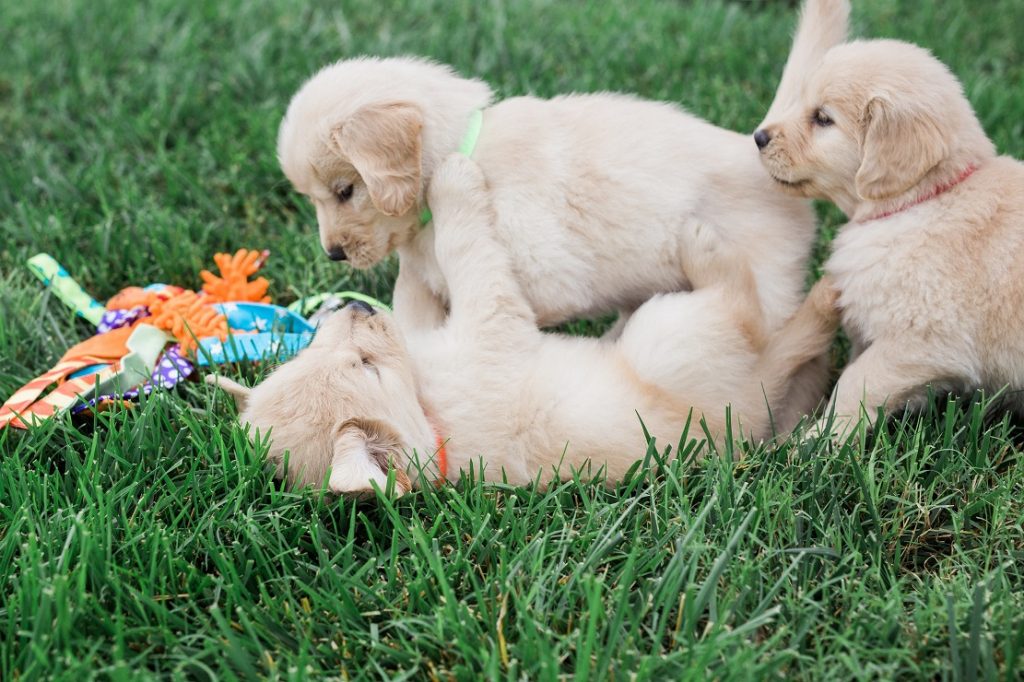Why Puppies Play and the Purpose of Playing
Puppies and adult dogs like to socialize. One important aspect of learning for puppies and how they fit in a multi-dog household is playing with other dogs and their pet parents. Playtime allows them to determine what boundaries there are in their household.

In addition, play allows puppies the ability to test what is and is not appropriate behavior, such as chewing on a shoe versus chewing on a toy. Other purposes of play provide puppies with additional benefits, including:
- Strengthening the bond you and your puppy share. Establishing a strong bond between you and your puppy makes it easier to train him or her. Puppies will trust you to guide and teach them.
- Puppies learn how to control biting. Playtime with stuffed toys and tug-type toys helps your puppy determine the appropriate level of biting necessary without becoming overly aggressive.
- Play can help alleviate fears. If puppies are afraid of thunderstorms or fireworks, playing with them at these times can help provide a distraction. Not to mention, it can slowly help them overcome their fears.
- Puppies develop listening, hearing, sniffing, licking, and other senses through play. Play allows puppies to experiment with all of their different senses and discover how they all work together.
In addition, play allows puppies the ability to test what is and is not appropriate behavior, such as chewing on a shoe versus chewing on a toy. Other purposes of play provide puppies with additional benefits, including:
- Strengthening the bond you and your puppy share. Establishing a strong bond between you and your puppy makes it easier to train him or her. Puppies will trust you to guide and teach them.
- Puppies learn how to control biting. Playtime with stuffed toys and tug-type toys helps your puppy determine the appropriate level of biting necessary without becoming overly aggressive.
- Play can help alleviate fears. If puppies are afraid of thunderstorms or fireworks, playing with them at these times can help provide a distraction. Not to mention, it can slowly help them overcome their fears.
- Puppies develop listening, hearing, sniffing, licking, and other senses through play. Play allows puppies to experiment with all of their different senses and discover how they all work together.

- Playtime helps build strong muscles and bones. Running, jumping, wrestling, and rolling around all are great exercises that promote strong muscles and bones in your puppy.
- Puppies learn how to communicate through play. Communication skills between you and your puppies are initially developed when you play with them. These skills are needed so your puppies will be more responsive when you are attempting to teach them different commands, such as sit, stay, roll over, and so on.
Puppies do enjoy playing with their pet parents, other dogs, or on their own when they have access to toys. You can even install a small dog door so your puppy can enjoy playtime outdoors in your fenced-in backyard while you are at work.
